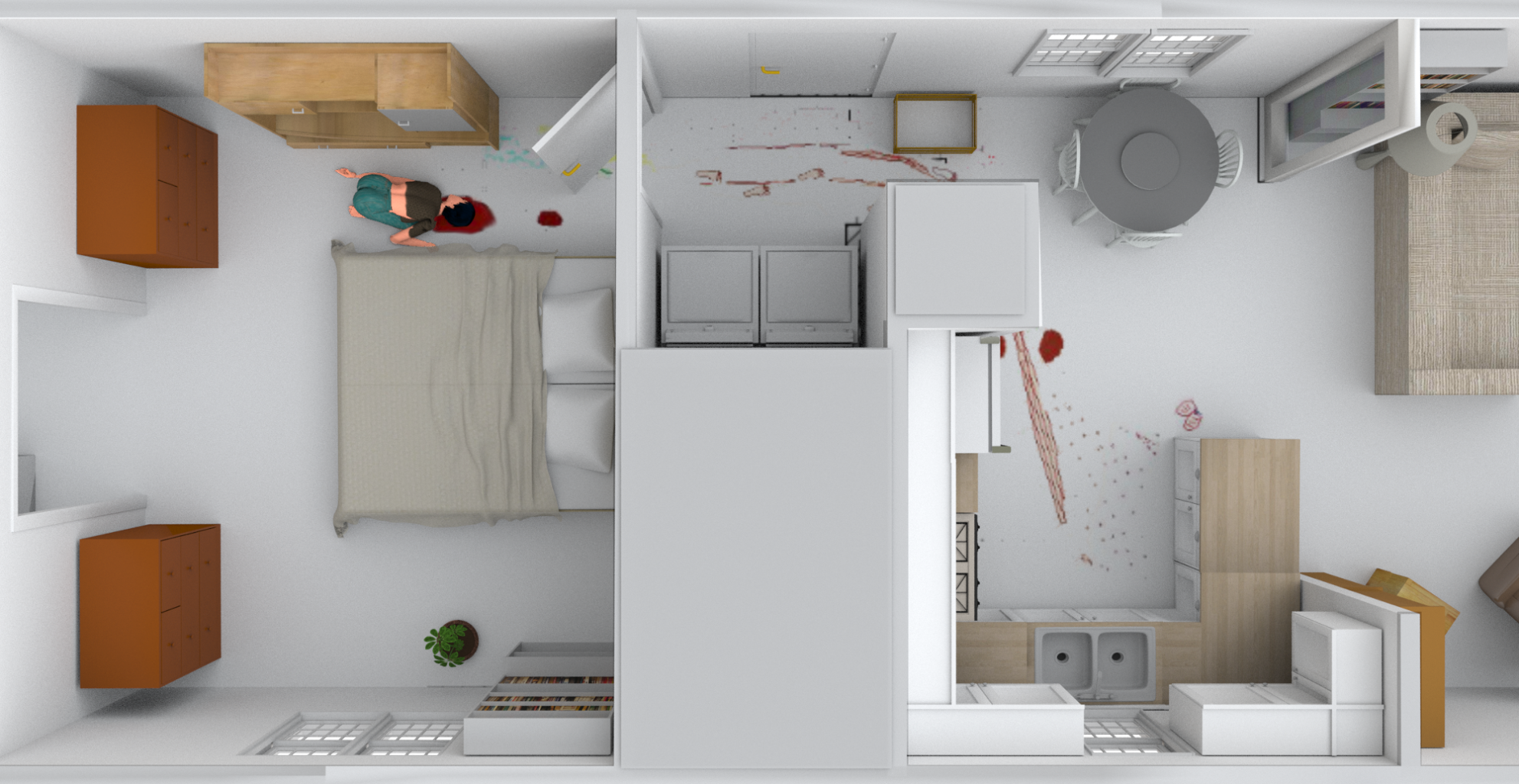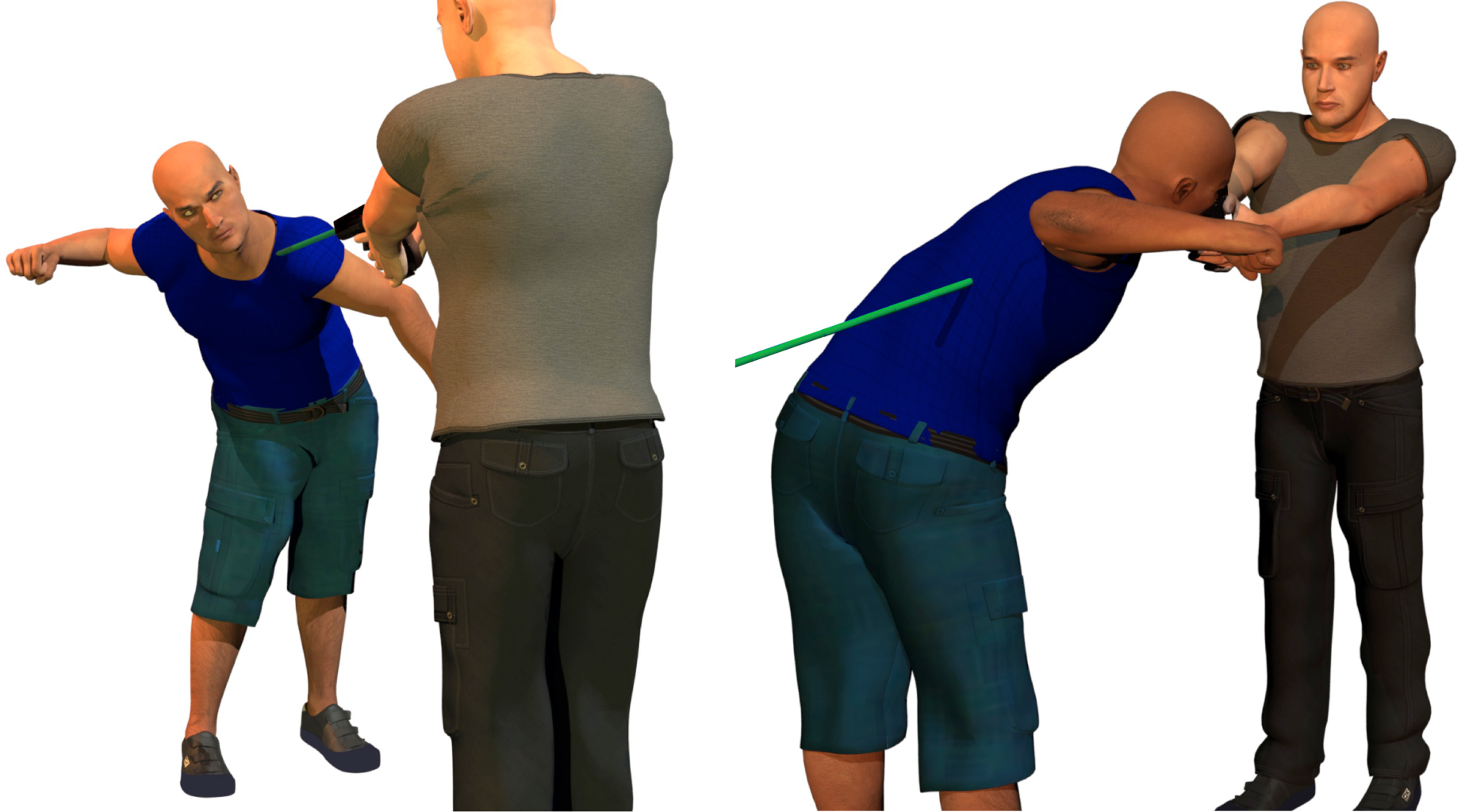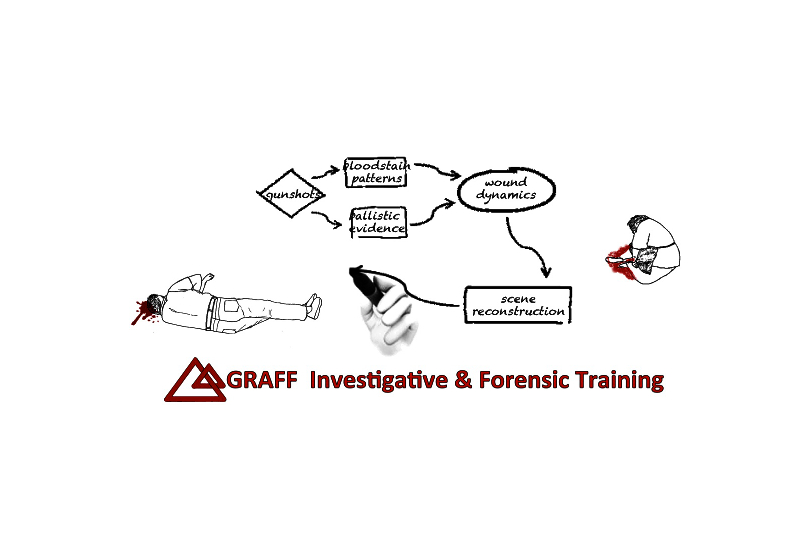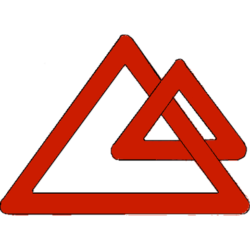
ADVANCED CRIME SCENE RECONSTRUCTION: USING GRAPHICS AND VIRTUAL MODELS AS ANALYTICAL TOOLS
Comprehensive and accurate reconstruction of evidence can make or break a case, and ultimately determine if justice is served. Graphics and virtual models are often used as court exhibits but these tools are also very valuable in the analytical process.

Course Description: A 5-day (40 hour) advanced course, designed by veteran field experts for detectives, crime scene investigators, crime scene technicians, and others involved in crime scene analysis. Through lecture and practical exercises, investigators expand their reconstruction skill sets by using organizational tools, graphics and virtual models in the objective analysis of scenes and evidence. Students will produce 2D and 3D representations of scenes and evidence for testing and analyzing scenarios within the context of the scene.

Classroom instruction and practical exercises include:
- Methods for electronically organizing evidence and analysis for reconstruction.
- Techniques for detailed analysis of images.
- Building realistic 2D and 3D crime scene models from scene measurements or scanner data.
- Correlating images to the crime scene using interactive PDFs.
- Interpreting and transposing autopsy data to virtual models to test scenarios in a virtual scene based on the data collected.
- Incorporating interoperable data sources into a scene model.
- Implementing reconstruction methodology to reconstruct the events of a crime scene.
- Exploring the power of Powerpoint to prepare reconstruction presentations or reports.
- Developing a case presentation using graphics and virtual models
Students will apply concepts in the analysis of historically based case scenarios.

Students will apply concepts in the analysis of historically based case scenarios.
Class Requirements: Prior investigative or crime scene experience and previous training in crime scene reconstruction is preferred. Familiarity with basic bloodstain patterns is helpful. Course materials are provided in electronic format. Attendees should bring a laptop computer with USB connection with capability of installing course information and software, including office suite, image editing, and computer-assisted drawing programs. Attendees should bring a current or closed case; students will practice techniques on both instructor-provided case and their own case.
Registration: This Advanced Crime Scene Reconstruction: Using Graphic and Virtual Models as Analytical Tools course is sponsored through TriTech Forensics, the training partner for the International Association of Identification (IAI). Visit www.tritechtraining.com or contact Phil Sanfilippo, 954-806-2123 phil@tritechusa.com to register for the course.

